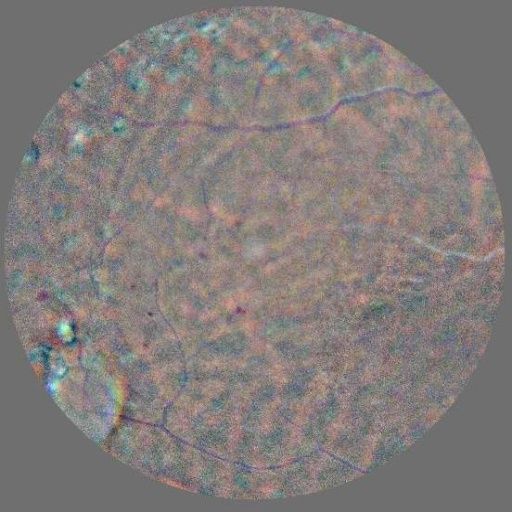- 微信DeepSeek王炸组合
金枝玉叶9
程序员知识储备1程序员知识储备2vue.js
1.背景信息微信:腾讯旗下的超级社交应用,涵盖通讯、支付、小程序生态等,月活用户超10亿。DeepSeek:专注AGI(通用人工智能)的中国公司,核心产品包括大模型(如DeepSeek-R1、DeepSeek-Chat)、多模态技术及行业解决方案。“王炸组合”:通常指强强联合的顶级合作,可能暗示技术互补或场景融合。2.可能的合作方向AI功能嵌入微信生态:DeepSeek的大模型能力(如对话、搜索、
- 访问deep seek开放平台的c#代码
无敌爆爆关
c#unity
访问deepseek平台首先需要去deepseek平台的api开放平台创建一个APIkey,这是首要前提,然后再使用下面这个脚本stringurl="https://api.deepseek.com/v1/chat/completions";stringkey="Bearer"+"自己的key";publicTexttext1;IEnumeratorPostData(Actionaction){s
- JAVA调用Deepseek的api,完成基本对话
菜菜-plus
java开发语言Deepseek
获取API密钥首先,从DeepSeek平台获取API密钥,用于身份验证。添加HTTP客户端依赖使用Java的HTTP客户端库(如ApacheHttpClient或OkHttp)来发送HTTP请求。如果使用Maven,可以在pom.xml中添加依赖:、org.apache.httpcomponentshttpclient4.5.13com.squareup.okhttp3okhttp4.9.3创建H
- DeepSeek提示词高阶用法全解析:职场效率提升的10个实战案例*——让AI成为你的全能职场助手
涛涛讲AI
效率工具人工智能deepseek扣子智能体AI应用大模型python
近期,国产AI模型DeepSeek因其强大的中文理解力、低成本与高性能的组合,成为职场人热议的焦点。本文结合官方指南与实战案例,总结10个贴近职场场景的提示词高阶用法,助你解锁AI生产力工具的真正潜力。一、角色设定:让AI化身“资深顾问”场景:需要快速生成专业方案但缺乏经验时,通过角色设定让AI模拟行业专家视角。提示词示例:角色:资深企业战略顾问(专注数字化转型领域)背景:某传统制造企业计划转型智
- 干货:DeepSeek+SpringAI实现流式对话!
液态不合群
deepseek
前面一篇文章我们实现了《炸裂:SpringAI内置DeepSeek啦!》,但是大模型的响应速度通常是很慢的,为了避免用户用户能够耐心等待输出的结果,我们通常会使用流式输出一点点将结果输出给用户。那么问题来了,想要实现流式结果输出,后端和前端要如何配合?后端要使用什么技术实现流式输出呢?接下来本文给出具体的实现代码,先看最终实现效果:解决方案在SpringBoot中实现流式输出可以使用Sse(Ser
- 【DeepSeek】一文详解GRPO算法——为什么能减少大模型训练资源?
FF-Studio
DeepSeekR1算法
GRPO,一种新的强化学习方法,是DeepSeekR1使用到的训练方法。今天的这篇博客文章,笔者会从零开始,层层递进地为各位介绍一种在强化学习中极具实用价值的技术——GRPO(GroupRelativePolicyOptimization)。如果你是第一次听说这个概念,也不必慌张,笔者会带领你从最基础的强化学习背景知识讲起,一步步剖析其来龙去脉,然后再结合实例讲解GRPO在实际应用中的思路和操作示
- 使用DeepSeek+本地知识库,尝试从0到1搭建高度定制化工作流(数据分析篇)
代码轨迹
Python数据分析人工智能deepseek
7.3.数据监控与生成本地知识库目的:监控新生成的小红书文案,记录每一次生成的小红书文案风格。后续根据输入topic,检索与某一topic有关的文案,可以根据先前的文案风格,生成类似风格的文案。实现思路:1.要实现文件监控功能,需要使用watchdog库。watchdog是一个Python库,用于监控文件系统的变化。它提供了多种事件类型,如文件创建、修改、删除等,可以用来监控文件的变化。启动一个线
- 1 分钟极速接入:ABAP 系统如何调用 DeepSeek
汪子熙
ABAP百科全书chatgpt人工智能abapNetWeaver
笔者之前的文章,已经详细介绍了DeepSeek的API调用方式:在腾讯HAI上使用DeepSeek+RAG实现SAP私人知识库免费使用DeepSeekR1满血版不卡顿,支持个人知识库D
- 通俗诠释 DeepSeek-V3 模型的 “671B” ,“37B”与 “128K”,用生活比喻帮你理解模型的秘密!
涛涛讲AI
大模型生活deepseek人工智能大模型python
欢迎来到涛涛聊AI。在DeepSeek-V3模型的参数描述中,你可能会看到类似“671B37B128K”这样的标记。这些字母和数字的组合看起来像密码,但其实它们揭示了模型的“大脑容量”和“工作方式”。我们用日常生活的比喻来解释:一、数字含义:模型“大脑”的三大指标“671B”:总知识库容量含义:模型总共学习了6710亿条知识(671Billion参数)。类比:相当于一座图书馆的总藏书量。数字越大,
- DeepSeek的崛起之路:从技术突破到行业变革
诚信爱国敬业友善
心得人工智能aiDeepSeek
一、DeepSeek的进化历程初创与奠基(2023-2024)作为幻方量化子公司,DeepSeek于2023年在杭州成立,专注于大语言模型研发。其首代模型通过量化投资的算法积累实现推理效率突破,为后续发展奠定基础。技术爆发(2024-2025)2024年末:发布DeepSeek-V3(671B参数),性能超越多数开源模型,逼近GPT-4等闭源标杆。2025年1月:推出R1系列(660B参数),通过
- DeepSeek 助力 Vue 开发:打造丝滑的日期选择器(Date Picker),未使用第三方插件
宝码香车
#DeepSeek#Vuevue.js前端javascriptecmascriptDeepSeek
前言:哈喽,大家好,今天给大家分享一篇文章!并提供具体代码帮助大家深入理解,彻底掌握!创作不易,如果能帮助到大家或者给大家一些灵感和启发,欢迎收藏+关注哦目录DeepSeek助力Vue开发:打造丝滑的日期选择器(DatePicker),未使用第三方插件前言进入安装好的DeepSeek页面效果指令输入**属性(Props)****事件(Events)**组件代码,src\components\Dat
- 0基础Deepseek-AI编程课程
2501_90533339
AI编程人工智能
这个0基础Deepseek-AI编程班课程,专门为没有编程经验的学员设计,涵盖了AI编程的基础知识,并深入讲解算法类工具的设计思维,让学员掌握AI编程的核心技能,最终能够独立开发AI工具。课程亮点✅从零开始:即使是0基础的小白,也能快速入门AI编程,掌握核心概念。✅实战驱动:课程不仅仅讲解理论,更会带领学员动手实操,设计属于自己的AI工具。✅深入AI算法:掌握AI编程的逻辑,理解如何构建和优化AI
- DeepSeek 助力 Vue 开发:打造丝滑的瀑布流布局(Masonry Layout)
宝码香车
#DeepSeek#Vuevue.js前端javascriptDeepSeekecmascript
前言:哈喽,大家好,今天给大家分享一篇文章!并提供具体代码帮助大家深入理解,彻底掌握!创作不易,如果能帮助到大家或者给大家一些灵感和启发,欢迎收藏+关注哦目录DeepSeek助力Vue开发:打造丝滑的瀑布流布局(MasonryLayout)前言进入安装好的DeepSeek页面效果指令输入**组件属性(Props)****组件事件(Events)**think组件代码1.组件实现代码2.调用示例3.
- DataWorks Copilot × DeepSeek-R1 来了!给你的智能数据开发加满 buff
DataWorksCopilot×DeepSeek-R1来了!DataWorksCopilot,作为一站式智能数据开发治理平台DataWorks的智能助手,借助AI推理和自然语言处理能力,通过提供代码辅助和智能应用开发功能,为开发者和企业用户带来便捷高效的数据开发体验。现在,DataWorksCopilot与DeepSeek-R1模型深度对接,支持DeepSeek-R1-671B模型与DeepSe
- 深入了解与全面使用DeepSeek:从基础到高级应用
一位卑微的码农
人工智能大数据java-eespringboot
引言随着AI技术的发展,DeepSeek作为一款先进的智能助手,为用户提供了强大的文本生成、代码分析、数学公式处理等能力。本文将详细介绍DeepSeek的基础知识、安装配置、API调用方法以及高级应用技巧,帮助你充分挖掘这一工具的潜力。一、认识DeepSeek1.1DeepSeek简介DeepSeek是由深度求索公司开发的人工智能平台,它支持三种主要模式:基础模型(V3)、深度思考(R1)和联网搜
- 【深度学习】计算机视觉(CV)-图像分类-ResNet(Residual Network,残差网络)
IT古董
深度学习人工智能深度学习计算机视觉分类
ResNet(ResidualNetwork,残差网络)是一种深度卷积神经网络(CNN)架构,由何恺明(KaimingHe)等人在2015年提出,最初用于ImageNet竞赛,并在分类任务上取得了冠军。ResNet的核心思想是残差学习(ResidualLearning),它通过跳跃连接(SkipConnections)解决了深度神经网络训练中的梯度消失和梯度爆炸问题,使得非常深的网络(如50层、1
- 论deepseek软件底层原理
星糖曙光
磨刀不误砍柴工(工具重要性)AI作画经验分享人工智能笔记
DeepSeek软件底层原理剖析一、核心架构基石(一)混合专家架构(MoE)架构本质:MoE架构模拟人类专家协作模式,构建一个专家集合。每个专家模块专门负责特定类型或领域知识的处理。任务分配机制:当模型面临输入任务时,类似智能调度系统的“路由器”会分析任务特征,将其导向最适配的专家模块。如处理医学文本时,将任务分配给擅长医学知识处理的专家,避免通用模块处理的低效性,极大提升计算效率与任务处理的针对
- DeepSeek 助力 Vue 开发:打造丝滑的开关切换(Switch)
宝码香车
#DeepSeekvue.js前端javascriptDeepSeekecmascript
前言:哈喽,大家好,今天给大家分享一篇文章!并提供具体代码帮助大家深入理解,彻底掌握!创作不易,如果能帮助到大家或者给大家一些灵感和启发,欢迎收藏+关注哦目录DeepSeek助力Vue开发:打造丝滑的开关切换(Switch)前言进入安装好的DeepSeek页面效果指令输入think组件代码组件特点说明:额外建议:代码测试页面效果自己部署DeepSeek安装地址相关文章️✍️️️️⚠️⬇️·正文开始
- 清华发布:DeepSeek学习教程ppt 104页完整版免费分享
2501_90649720
人工智能学习
最近国产DeepSeek火出圈,其出色的性能和巨大的潜力引得各路资本巨头蜂蛹而入,纷纷与其合作。红遍世界。在DeepSeek火遍世界时,清华大学的博士后团队默默出品了一份名为《DeepSeek:从入门到精通》的ai教学课程。课程一经发布,就引得各个自媒体ai博主的疯传,一度冲上热搜。我专门去看了一下这个教程,确实够硬,够专业,够全面!完整版教程资源我已经帮大家整理好放下面了,大家自行领取。资源链接
- DeepSeek 混合专家(MoE)架构技术原理剖析
计算机学长
通用大语言模型人工智能架构
DeepSeek混合专家(MoE)架构技术原理剖析在人工智能快速发展的当下,大规模语言模型不断突破创新,DeepSeek混合专家(MoE)架构脱颖而出,成为业内关注焦点。本文将深入剖析其技术原理,为大家揭开它的神秘面纱。一、MoE架构概述(一)基本概念混合专家(MixtureofExperts,MoE)架构,简单来说,就像是一个专家团队。在这个团队里,每个专家都是一个小型神经网络,各自擅长处理特定
- 【深度解析】ICLR:人工智能领域的顶级学术会议 | 顶会与SCI期刊的区别全攻略
X_taiyang18
人工智能
【深度解析】ICLR:人工智能领域的顶级学术会议|顶会与SCI期刊的区别全攻略简介在人工智能和机器学习领域,ICLR(InternationalConferenceonLearningRepresentations)被誉为“深度学习的顶级会议”。自2013年由深度学习三巨头中的YoshuaBengio和YannLeCun创办以来,ICLR迅速崛起,成为全球科研人员争相投稿的学术盛会。那么,ICLR
- Vue3中关于el-dialog组件给其添加:deep()样式不生效
1142527603
vue.jsjavascript前端
去掉scoped,在样式冲突的情况下,可以给el-dialog添加一个类名。注意:这里element-plus官方文档虽然说custom-class已经弃用了,其实也还能用,因为目前为止还没有改成class去定义。
- 本地搭建deepseek并提供给其它人使用(最全,完整可用)
唐大帅
deepseekdeepseek本地化
最近deepseek非常火,可以称得上是国人的骄傲了。也导致他的网站和api都比较卡。因为是开源的,我们可以很方便的架设其蒸馏模型到自己的主机上。PS:虽然也可以Cpu运行模型,但是如果没有8G以上的显存卡的话,只能搭建7B以下的模型,体验效果并不太好。一、安装Ollama1.1在线安装(推荐方式,需要科学上网)在Ubuntu终端中直接执行下面的命令,下载安装脚本会自动下载适合你系统架构的Olla
- el-dialog修改其样式不生效加deep也没用
夏与冰
前端
场景el-dialog标签直接写在了template下。解决方法在template中先写一层div,包裹住el-dialog。
- 本地部署 DeepSeek:环境准备 + 详细步骤 + 高级部署方案 + 可视化工具集成 + 故障排除手册 + 性能优化建议
Katie。
人工智能技术发展aideepseek人工智能人工智能大模型
前言随着人工智能技术的迅猛发展,大语言模型(LLM)在多个行业中的应用日益广泛,从自然语言处理、内容生成到智能客服、医疗诊断等领域,AI正在深刻改变传统的工作方式和业务流程。DeepSeek作为一家新兴的AI公司,凭借其高效的AI模型和开源的优势,迅速在竞争激烈的AI市场中脱颖而出。其模型不仅在性能上表现出色,还通过开源策略吸引了大量开发者和企业的关注,形成了一个活跃的社区生态。然而,随着AI技术
- DeepSeek底层揭秘——多头潜在注意力MLA
9命怪猫
AIai人工智能大模型
目录1.多头潜在注意力(MLA)2.核心功能3.技术要素4.难点挑战暨含解决方案5.技术路径6.应用场景7.实际案例:DeepSeek8.最新研究与技术进展9.未来趋势猫哥说1.多头潜在注意力(MLA)(1)定义“多头潜在注意力(Multi-HeadLatentAttention,MLA)”是一种基于注意力机制的深度学习方法,旨在通过多个注意力头(Multi-HeadAttention)对潜在空间
- linux内网部署deepseek大模型(ollama+anythingllm)
wukurua
大模型linux大模型人工智能docker
一、安装ollama来源:ollama/docs/linux.mdatmain·ollama/ollama·GitHub1.下载安装包ollama下载链接:https://ollama.com/download/ollama-linux-amd64.tgz,下载后放在用户目录下2.运行脚本#!/bin/sh#ThisscriptinstallsOllamaonLinux.#Itdetectsthe
- DeepSeek大模型本地化部署与实践指南
星辰@Sea
人工智能人工智能DeepSeekAInlp
前言在数据隐私要求严苛或网络环境受限的场景中,本地化部署大模型成为企业AI落地的关键需求。本文将手把手教你如何实现DeepSeek大模型的本地化部署,并提供完整的实践案例代码。部署准备硬件要求配置项推荐规格最低要求GPUNVIDIAA10080Gx4RTX309024GCPUIntelXeonSilver4314i7-12700K内存512GBDDR464GBDDR4存储2TBNVMeSSD512
- 基于DeepSeek-R1的高效推理优化实战:从API封装到动态批处理
竹木有心
人工智能
引言在LLM(大语言模型)应用中,推理延迟和计算资源消耗是核心痛点。本文以DeepSeek-R1-7B模型为例,通过动态批处理、模型量化和异步推理三大技术,将单次推理耗时从2.3s降至0.4s,吞吐量提升6倍。所有代码均通过PyTorch2.1+验证。一、环境准备与模型加载优化1.1硬件感知的模型加载通过device_map自动分配计算资源,避免显存溢出fromtransformersimport
- 使用DeepSeek建立一个智能聊天机器人0.1
yehaiwz
python机器人开发语言
我对代码进行进一步的完善,增加更多的节点连接及功能运用,并确保配置文件config.json的内容更加丰富和详细。以下是完善后的代码和config.json文件内容。完善后的代码importtkinterastkfromtkinterimportscrolledtext,filedialog,messageboximportrequestsimportosimportthreadingimport
- 矩阵求逆(JAVA)利用伴随矩阵
qiuwanchi
利用伴随矩阵求逆矩阵
package gaodai.matrix;
import gaodai.determinant.DeterminantCalculation;
import java.util.ArrayList;
import java.util.List;
import java.util.Scanner;
/**
* 矩阵求逆(利用伴随矩阵)
* @author 邱万迟
- 单例(Singleton)模式
aoyouzi
单例模式Singleton
3.1 概述 如果要保证系统里一个类最多只能存在一个实例时,我们就需要单例模式。这种情况在我们应用中经常碰到,例如缓存池,数据库连接池,线程池,一些应用服务实例等。在多线程环境中,为了保证实例的唯一性其实并不简单,这章将和读者一起探讨如何实现单例模式。 3.2
- [开源与自主研发]就算可以轻易获得外部技术支持,自己也必须研发
comsci
开源
现在国内有大量的信息技术产品,都是通过盗版,免费下载,开源,附送等方式从国外的开发者那里获得的。。。。。。
虽然这种情况带来了国内信息产业的短暂繁荣,也促进了电子商务和互联网产业的快速发展,但是实际上,我们应该清醒的看到,这些产业的核心力量是被国外的
- 页面有两个frame,怎样点击一个的链接改变另一个的内容
Array_06
UIXHTML
<a src="地址" targets="这里写你要操作的Frame的名字" />搜索
然后你点击连接以后你的新页面就会显示在你设置的Frame名字的框那里
targerts="",就是你要填写目标的显示页面位置
=====================
例如:
<frame src=&
- Struts2实现单个/多个文件上传和下载
oloz
文件上传struts
struts2单文件上传:
步骤01:jsp页面
<!--在进行文件上传时,表单提交方式一定要是post的方式,因为文件上传时二进制文件可能会很大,还有就是enctype属性,这个属性一定要写成multipart/form-data,不然就会以二进制文本上传到服务器端-->
<form action="fileUplo
- 推荐10个在线logo设计网站
362217990
logo
在线设计Logo网站。
1、http://flickr.nosv.org(这个太简单)
2、http://www.logomaker.com/?source=1.5770.1
3、http://www.simwebsol.com/ImageTool
4、http://www.logogenerator.com/logo.php?nal=1&tpl_catlist[]=2
5、ht
- jsp上传文件
香水浓
jspfileupload
1. jsp上传
Notice:
1. form表单 method 属性必须设置为 POST 方法 ,不能使用 GET 方法
2. form表单 enctype 属性需要设置为 multipart/form-data
3. form表单 action 属性需要设置为提交到后台处理文件上传的jsp文件地址或者servlet地址。例如 uploadFile.jsp 程序文件用来处理上传的文
- 我的架构经验系列文章 - 前端架构
agevs
JavaScriptWeb框架UIjQuer
框架层面:近几年前端发展很快,前端之所以叫前端因为前端是已经可以独立成为一种职业了,js也不再是十年前的玩具了,以前富客户端RIA的应用可能会用flash/flex或是silverlight,现在可以使用js来完成大部分的功能,因此js作为一门前端的支撑语言也不仅仅是进行的简单的编码,越来越多框架性的东西出现了。越来越多的开发模式转变为后端只是吐json的数据源,而前端做所有UI的事情。MVCMV
- android ksoap2 中把XML(DataSet) 当做参数传递
aijuans
android
我的android app中需要发送webservice ,于是我使用了 ksop2 进行发送,在测试过程中不是很顺利,不能正常工作.我的web service 请求格式如下
[html]
view plain
copy
<Envelope xmlns="http://schemas.
- 使用Spring进行统一日志管理 + 统一异常管理
baalwolf
spring
统一日志和异常管理配置好后,SSH项目中,代码以往散落的log.info() 和 try..catch..finally 再也不见踪影!
统一日志异常实现类:
[java]
view plain
copy
package com.pilelot.web.util;
impor
- Android SDK 国内镜像
BigBird2012
android sdk
一、镜像地址:
1、东软信息学院的 Android SDK 镜像,比配置代理下载快多了。
配置地址, http://mirrors.neusoft.edu.cn/configurations.we#android
2、北京化工大学的:
IPV4:ubuntu.buct.edu.cn
IPV4:ubuntu.buct.cn
IPV6:ubuntu.buct6.edu.cn
- HTML无害化和Sanitize模块
bijian1013
JavaScriptAngularJSLinkySanitize
一.ng-bind-html、ng-bind-html-unsafe
AngularJS非常注重安全方面的问题,它会尽一切可能把大多数攻击手段最小化。其中一个攻击手段是向你的web页面里注入不安全的HTML,然后利用它触发跨站攻击或者注入攻击。
考虑这样一个例子,假设我们有一个变量存
- [Maven学习笔记二]Maven命令
bit1129
maven
mvn compile
compile编译命令将src/main/java和src/main/resources中的代码和配置文件编译到target/classes中,不会对src/test/java中的测试类进行编译
MVN编译使用
maven-resources-plugin:2.6:resources
maven-compiler-plugin:2.5.1:compile
&nbs
- 【Java命令二】jhat
bit1129
Java命令
jhat用于分析使用jmap dump的文件,,可以将堆中的对象以html的形式显示出来,包括对象的数量,大小等等,并支持对象查询语言。 jhat默认开启监听端口7000的HTTP服务,jhat是Java Heap Analysis Tool的缩写
1. 用法:
[hadoop@hadoop bin]$ jhat -help
Usage: jhat [-stack <bool&g
- JBoss 5.1.0 GA:Error installing to Instantiated: name=AttachmentStore state=Desc
ronin47
进到类似目录 server/default/conf/bootstrap,打开文件 profile.xml找到: Xml代码<bean
name="AttachmentStore"
class="org.jboss.system.server.profileservice.repository.AbstractAtta
- 写给初学者的6条网页设计安全配色指南
brotherlamp
UIui自学ui视频ui教程ui资料
网页设计中最基本的原则之一是,不管你花多长时间创造一个华丽的设计,其最终的角色都是这场秀中真正的明星——内容的衬托
我仍然清楚地记得我最早的一次美术课,那时我还是一个小小的、对凡事都充满渴望的孩子,我摆放出一大堆漂亮的彩色颜料。我仍然记得当我第一次看到原色与另一种颜色混合变成第二种颜色时的那种兴奋,并且我想,既然两种颜色能创造出一种全新的美丽色彩,那所有颜色
- 有一个数组,每次从中间随机取一个,然后放回去,当所有的元素都被取过,返回总共的取的次数。写一个函数实现。复杂度是什么。
bylijinnan
java算法面试
import java.util.Random;
import java.util.Set;
import java.util.TreeSet;
/**
* http://weibo.com/1915548291/z7HtOF4sx
* #面试题#有一个数组,每次从中间随机取一个,然后放回去,当所有的元素都被取过,返回总共的取的次数。
* 写一个函数实现。复杂度是什么
- struts2获得request、session、application方式
chiangfai
application
1、与Servlet API解耦的访问方式。
a.Struts2对HttpServletRequest、HttpSession、ServletContext进行了封装,构造了三个Map对象来替代这三种对象要获取这三个Map对象,使用ActionContext类。
----->
package pro.action;
import java.util.Map;
imp
- 改变python的默认语言设置
chenchao051
python
import sys
sys.getdefaultencoding()
可以测试出默认语言,要改变的话,需要在python lib的site-packages文件夹下新建:
sitecustomize.py, 这个文件比较特殊,会在python启动时来加载,所以就可以在里面写上:
import sys
sys.setdefaultencoding('utf-8')
&n
- mysql导入数据load data infile用法
daizj
mysql导入数据
我们常常导入数据!mysql有一个高效导入方法,那就是load data infile 下面来看案例说明
基本语法:
load data [low_priority] [local] infile 'file_name txt' [replace | ignore]
into table tbl_name
[fields
[terminated by't']
[OPTI
- phpexcel导入excel表到数据库简单入门示例
dcj3sjt126com
PHPExcel
跟导出相对应的,同一个数据表,也是将phpexcel类放在class目录下,将Excel表格中的内容读取出来放到数据库中
<?php
error_reporting(E_ALL);
set_time_limit(0);
?>
<html>
<head>
<meta http-equiv="Content-Type"
- 22岁到72岁的男人对女人的要求
dcj3sjt126com
22岁男人对女人的要求是:一,美丽,二,性感,三,有份具品味的职业,四,极有耐性,善解人意,五,该聪明的时候聪明,六,作小鸟依人状时尽量自然,七,怎样穿都好看,八,懂得适当地撒娇,九,虽作惊喜反应,但看起来自然,十,上了床就是个无条件荡妇。 32岁的男人对女人的要求,略作修定,是:一,入得厨房,进得睡房,二,不必服侍皇太后,三,不介意浪漫蜡烛配盒饭,四,听多过说,五,不再傻笑,六,懂得独
- Spring和HIbernate对DDM设计的支持
e200702084
DAO设计模式springHibernate领域模型
A:数据访问对象
DAO和资源库在领域驱动设计中都很重要。DAO是关系型数据库和应用之间的契约。它封装了Web应用中的数据库CRUD操作细节。另一方面,资源库是一个独立的抽象,它与DAO进行交互,并提供到领域模型的“业务接口”。
资源库使用领域的通用语言,处理所有必要的DAO,并使用领域理解的语言提供对领域模型的数据访问服务。
- NoSql 数据库的特性比较
geeksun
NoSQL
Redis 是一个开源的使用ANSI C语言编写、支持网络、可基于内存亦可持久化的日志型、Key-Value数据库,并提供多种语言的API。目前由VMware主持开发工作。
1. 数据模型
作为Key-value型数据库,Redis也提供了键(Key)和值(Value)的映射关系。除了常规的数值或字符串,Redis的键值还可以是以下形式之一:
Lists (列表)
Sets
- 使用 Nginx Upload Module 实现上传文件功能
hongtoushizi
nginx
转载自: http://www.tuicool.com/wx/aUrAzm
普通网站在实现文件上传功能的时候,一般是使用Python,Java等后端程序实现,比较麻烦。Nginx有一个Upload模块,可以非常简单的实现文件上传功能。此模块的原理是先把用户上传的文件保存到临时文件,然后在交由后台页面处理,并且把文件的原名,上传后的名称,文件类型,文件大小set到页面。下
- spring-boot-web-ui及thymeleaf基本使用
jishiweili
springthymeleaf
视图控制层代码demo如下:
@Controller
@RequestMapping("/")
public class MessageController {
private final MessageRepository messageRepository;
@Autowired
public MessageController(Mes
- 数据源架构模式之活动记录
home198979
PHP架构活动记录数据映射
hello!架构
一、概念
活动记录(Active Record):一个对象,它包装数据库表或视图中某一行,封装数据库访问,并在这些数据上增加了领域逻辑。
对象既有数据又有行为。活动记录使用直截了当的方法,把数据访问逻辑置于领域对象中。
二、实现简单活动记录
活动记录在php许多框架中都有应用,如cakephp。
<?php
/**
* 行数据入口类
*
- Linux Shell脚本之自动修改IP
pda158
linuxcentosDebian脚本
作为一名
Linux SA,日常运维中很多地方都会用到脚本,而服务器的ip一般采用静态ip或者MAC绑定,当然后者比较操作起来相对繁琐,而前者我们可以设置主机名、ip信息、网关等配置。修改成特定的主机名在维护和管理方面也比较方便。如下脚本用途为:修改ip和主机名等相关信息,可以根据实际需求修改,举一反三!
#!/bin/sh
#auto Change ip netmask ga
- 开发环境搭建
独浮云
eclipsejdktomcat
最近在开发过程中,经常出现MyEclipse内存溢出等错误,需要重启的情况,好麻烦。对于一般的JAVA+TOMCAT项目开发,其实没有必要使用重量级的MyEclipse,使用eclipse就足够了。尤其是开发机器硬件配置一般的人。
&n
- 操作日期和时间的工具类
vipbooks
工具类
大家好啊,好久没有来这里发文章了,今天来逛逛,分享一篇刚写不久的操作日期和时间的工具类,希望对大家有所帮助。
/*
* @(#)DataFormatUtils.java 2010-10-10
*
* Copyright 2010 BianJing,All rights reserved.
*/
package test;
impor






